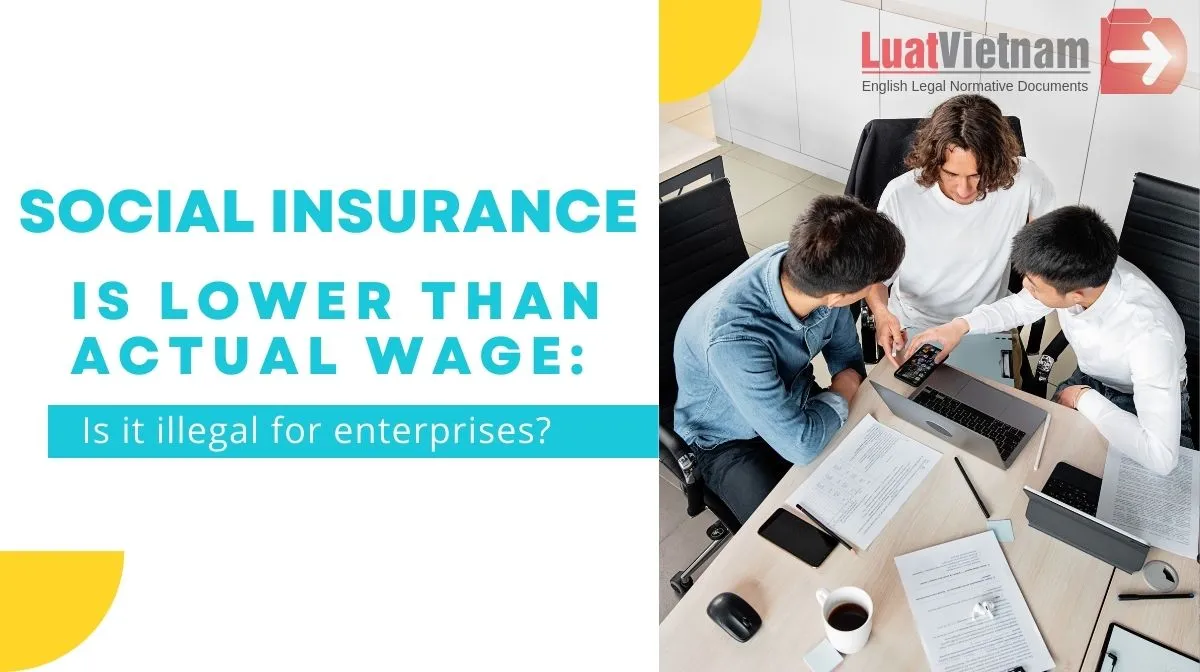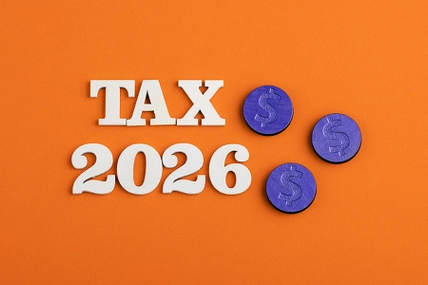Social insurance premium for an employee is a great expenditure for every enterprise. Many enterprises contribute lower social insurance premiums than the actual wage. Is it illegal for enterprises?
1. What is the level of social insurance payment?
Pursuant to Decision No. 595/QD-BHXH in 2017, the Decree No. 58/2020ND-CP, enterprises and employees shall extract part of the salary fund to pay social insurance, health insurance, and unemployment insurance with the percentage as follows:
- Enterprises: Pay 21.5% or 21.3% to the monthly salaries on which social insurance health insurance and unemployment insurance premiums are based.
- Employees: Pay 10.5% to the monthly salaries on which social insurance premiums are based.
Accordingly, the monthly social insurance is prescribed in Clause 26, Article 1, Circular No. 06/2021/TT-BLDTBXH as follows:
2. From January 1, 2018, to December 31, 2020, the monthly salaries on which social insurance premiums are based are the salaries and salary allowances prescribed in Clause 1 of this Article and other additional amounts as prescribed at Point a, Clause 3, Article 4 of the Circular No. 47/2015/TT-BLDTBXH.
From January 1, 2021 onwards, the monthly salaries on which social insurance premiums are based are the salaries, salary allowances and other additional amounts prescribed at Point a, Item b1 of Point b, and Item c1 of Point c, Clause 5, Article 3 of the Circular No. 10/2020/TT-BLDTBXH dated November 12, 2020 of the Ministry of Labor, Invalids and Social Affairs detailing and guiding the implementation of a number of articles of the Labor Code regarding labor contracts, councils for collective bargaining, occupations and jobs adversely affecting reproductive and child-rearing functions (hereinafter referred to as Circular No. 10/2020/TT-BLDTBXH).
In accordance with this law's provisions, the monthly salaries on which social insurance premiums are based are as follows:
- Salaries
- Salary allowances
- Other additional amounts are defined with the specific amounts and salaries prescribed in the contract and regularly paid in the salary period.
This amount is agreed upon and recorded in the labor contract on which social insurance premiums are based for employees.
However, a number of payments which is excluded from social insurance premium include:
- Bonuses for business results and level of working completion of employees.
- Bonuses for incentives
- Mid-shift meals
- Support for gasoline, phone, transportation, accommodation, fee for child care, and raising
- Other support for relatives' death, marriage, birthday, and grants for difficult living conditions.
2. Social insurance premium is lower than the wage: is it illegal?
Employee’s monthly wages which are based for social insurance premiums shall be defined on a fixed amount and directly recorded in the labor contract.

In accordance with Clause 3, Article 89, Law on Social Insurance 2014, in case the monthly salary exceeds 20 times the basic salary, the monthly salary on which social insurance premiums are based must equal 20 times the basic salary, equivalent to VND 28.9 million/month.
In reality, there are some arising payments for employees besides monthly wages. These payments are not fixed and are calculated in social insurance premiums.
Therefore, it is not illegal when the social insurance premium is lower than the wage. However, enterprises must ensure that social insurance must comply with the law provisions prescribed in Section 1.
Currently, although the salary is high under the agreement between the employers and the employees, the employer often records the lower wage level due to titles than the wage level in the labor contract, the remained payment will be included in allowances excluding social insurance contributions.
Employees still receive enough wage amount which is agreed upon between the employer and employee. However, the employee can be disadvantaged in social insurance benefits because the social agencies shall base on monthly wage level which is contributed to the social insurance to pay the social insurance regimes.
The employee should have a clear agreement on the wage contributed to social insurance in order to save his/her benefits when entering the labor contract.
3. What are the fines for not paying social insurance in accordance with law provisions?
It is legal if the employer pays social insurance premium lower than the actual wage but still ensures to pay full other amounts which are agreed between the employer and employee. The employer shall be imposed with administrative violations for the fines of failing to declare false information to get the low social insurance premium.
In accordance with point b, Clause 5, Article 39, Decree No. 12/2022/ND-CP, the fine will be prescribed as follows:
5. A fine equal to between 12% and 15% of the total compulsory social insurance and unemployment insurance premiums at the time of making a minute of administrative violations, with the total fine of no more than VND 75,000,000, shall be imposed on any employer that commits one of the following acts:
…
b) Failing to pay sufficient social insurance and unemployment insurance premiums but not on purpose of evasion;
Accordingly, the fines for failing to pay sufficient social insurance rights to the legal provisions shall be calculated in accordance with the relevant % with the payable amount at the time of making a minute of administrative violations.
Pursuant to Clause 1, Article 6, Decree No. 12/2022, the fine equals between 12% and 15% of the total compulsory social insurance; the fine will be doubled from 24% to 30% of the total compulsory social insurance.
Besides, the enterprise must pay social insurance in accordance with law provisions.
Here is the answer to the question: Social insurance premium is lower than the actual wage: Is it illegal?


![[Update now] Personal income tax policies 2026: 05 major changes](https://image3.luatvietnam.vn/uploaded/500x285twebp/images/original/2026/02/25/update-now-personal-income-tax-policies-2026-five-major-changes_2502135544.jpg)







